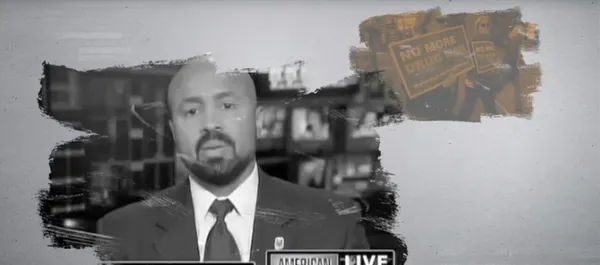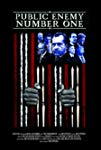Eye For Film >> Movies >> Public Enemy Number One (2019) Film Review
Public Enemy Number One
Reviewed by: Jennie Kermode

If you were a child in the early Eighties you probably remember the posters, the cheesy advertising in schools, the special storyline in Grange Hill. What should you do if somebody offers you drugs? Listen to Nancy Reagan. Just say no!
In this documentary, Robert Rippberger examines the War on Drugs from its origins in the Nixon era through to the present day. His focus is limited to the US and there is little older information to contextualise laws or public thinking on drugs prior to this time, but he has no shortage of material to work with and an impressive selection of interviewees, including three former drugs czars and the leaders of citizen anti-drugs campaigns. The first half of the film focuses heavily on efforts to penalise drug-taking more thoroughly, whilst the second makes room for more critique of the policy, as its failings became clearer over time, and for a look at the additional problems it created - many of which, in light of the country's longstanding obsession with skin colour, ought to have been easily predicted.
Beginning with the thesis that Nixon's promise to be tough on crime left draconian drugs laws as the obvious way to go, Rippberger explores tensions around hippy culture, the peace movement and the older generation's concern that young people were becoming unduly assertive. He looks at the impact of a system which, in an attempt to standardise policing across vast areas with very different crime profiles, resorted to target-setting, which in turn encouraged cops to reduce time spent on difficult rape or murder cases and go after easy drug arrests. There's a look at the impact of the three strikes and you're out law, though the focus here is on its human cost and the film is relatively light on the economic forces supporting mass incarceration. What we do see is how, as each of these approaches was entrenched, it became harder and harder for incoming politicians to do anything to fix the situation - and more and more advantageous for them to ramp up the rhetoric.
How did we get from there to where we are now? There's an interesting section on the repression of research (or the silencing of those who conducted it) around the beneficial possibilities of drugs like cannabis and ecstasy, and a look at how pressure for access to medical cannabis gradually began to change public thinking. There's discussion of harm reduction initiatives and of why it is that people find themselves doing drugs in the first place, with Ice-T (who says he sold them but never used them) speaking passionately about the grim lives many Americans live and the need for real social change.
Spanning such a long period of time, the film has the advantage of having several interviewees whose views have changed and who are prepared to talk about that. Although it presents the War as inherently political and deeply problematic, the views we hear are well balanced and the conclusions reached are nuanced. This is precisely the kind of mature conversation that the US has needed (though it has been seen in some other countries) but which, util recently, seemed to be a political impossibility. It's refreshingly free of sentimental reveries about the wonders of inebriation, as it is of old-style propaganda (though we get a few snippets of this served up for entertainment value early on). What it offers is, at last, a sober perspective.
Reviewed on: 23 Nov 2019
















